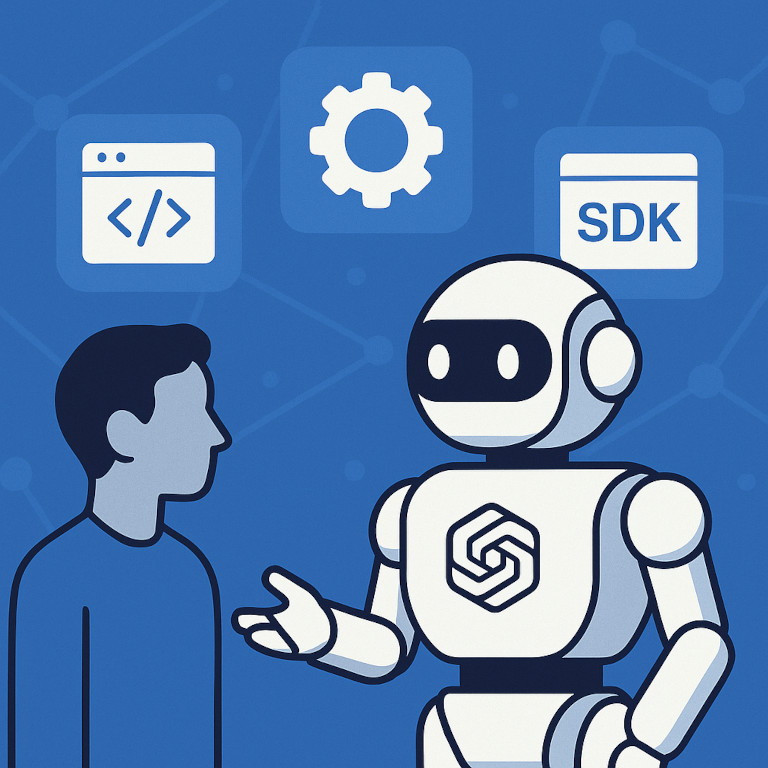Introduction
OpenAI has unveiled powerful new tools designed to make agentic applications easier to build, deploy, and manage.
The Responses API and the Agents SDK simplify workflows for developers, enabling them to create AI systems that perform multi-step reasoning, use tools, and act in the real world with greater efficiency.
The New Building Blocks
- Responses API: Combines the simplicity of the Chat Completions API with tool-use capabilities from the Assistants API. Developers can now integrate built-in tools like web search, file search, or computer actions in a single call.
- Built-in Tools: Out-of-the-box support for Web Search, File Search, and Computer Use. These allow agents to fetch real-time info, scan documents, or interact with software and systems.
- Agents SDK: An open-source toolkit that helps orchestrate both single and multi-agent systems. Includes handoffs, guardrails, session management, and tracing/observability to monitor agent behavior.
Why This Matters
- Reduced Dev Overhead: Less manual orchestration and fewer “glue scripts” required.
- Faster Prototyping: Teams can launch production-ready agents faster than ever.
- Multi-Agent Workflows: Easier collaboration between specialized agents with built-in handoffs.
- Reliability & Observability: Tracing features provide visibility into how agents think, fail, and recover.
What About Existing APIs?
The Assistants API will be gradually phased out by mid-2026, with the Responses API taking over as the new standard. Developers using the Chat Completions API can continue doing so, but OpenAI recommends switching to Responses for new projects.
Challenges Ahead
- Costs: Web search, file search, and computer use may add significant usage costs at scale.
- Security: Strong guardrails are needed when agents gain access to external data and systems.
- Complex Orchestration: Multi-agent designs remain challenging despite SDK support.
- Vendor Lock-In: Heavy reliance on OpenAI tooling may limit portability across platforms.
Conclusion
OpenAI’s latest move signals a clear shift toward mainstream agentic AI development.
By lowering technical barriers, offering pre-built tools, and providing observability, the company is setting the stage for a new generation of intelligent applications.
For developers and businesses, now is the time to experiment, migrate existing projects, and explore how these tools can reshape workflows.
Sources
- OpenAI – New tools for building agents (March 2025): https://openai.com/index/new-tools-for-building-agents/
- Dynatrace – Building agentic AI applications with OpenAI Agents SDK: https://www.dynatrace.com/news/blog/building-agentic-ai-applications-with-openai-agents-sdk/
- ITPro – OpenAI wants to simplify how developers build AI agents: https://www.itpro.com/technology/artificial-intelligence/openai-agentic-ai-development-tools
- The Verge – OpenAI will let other apps deploy its computer-operating AI: https://www.theverge.com/news/627556/openai-ai-agents-responses-api-agents-sdk

